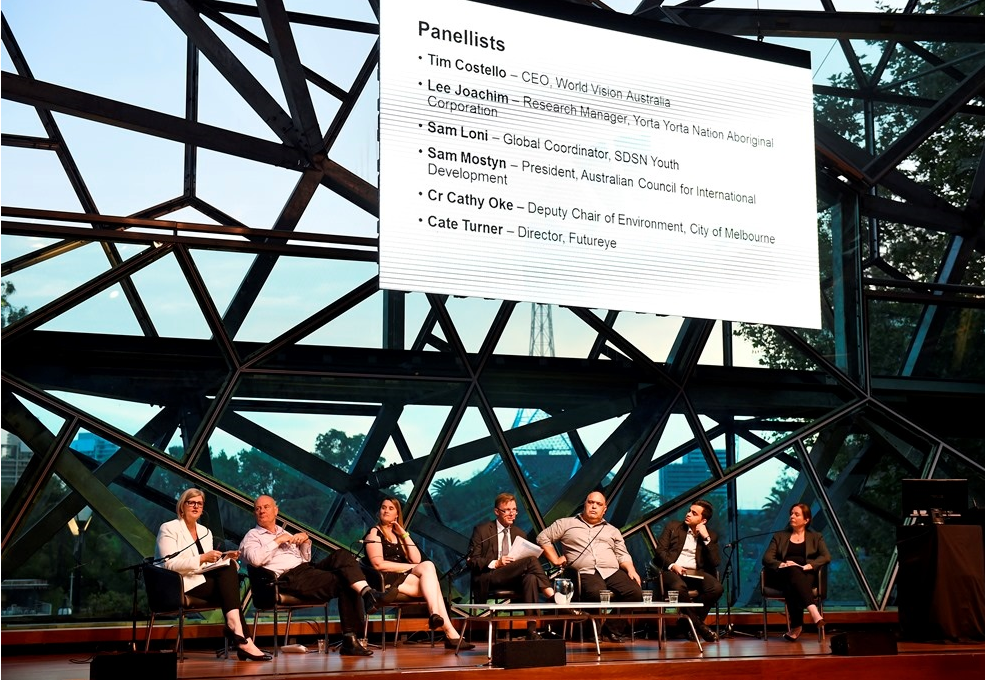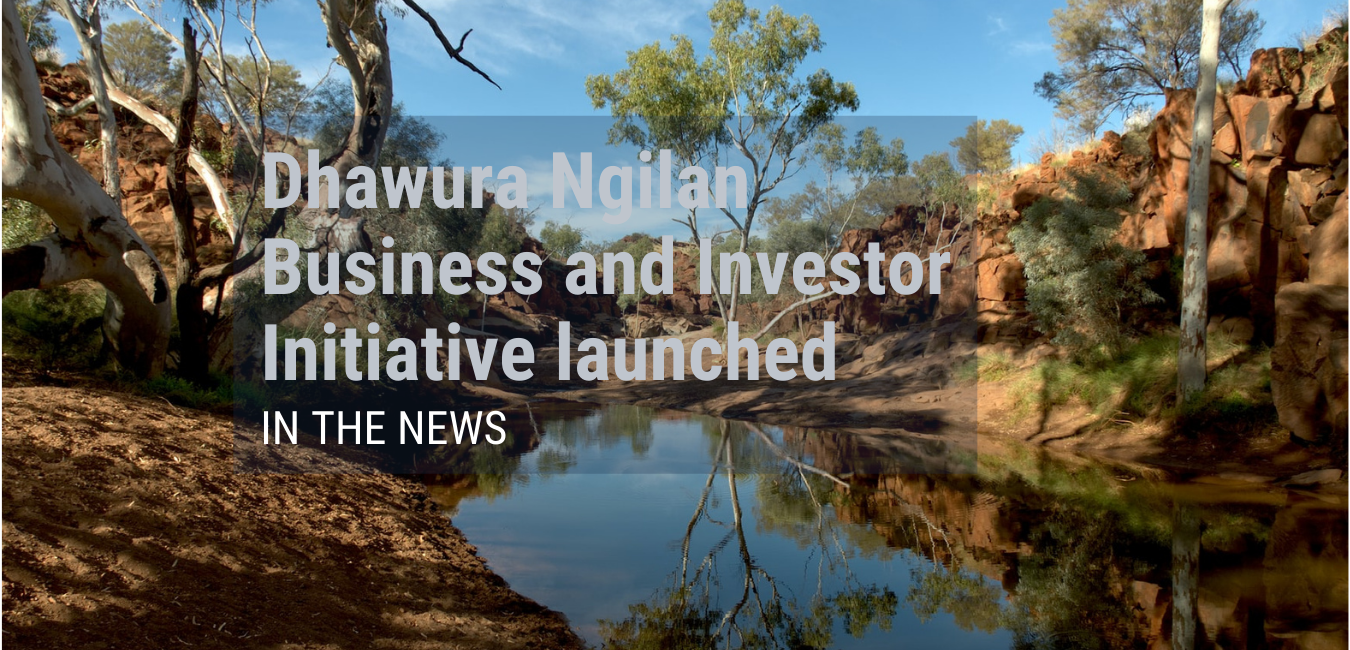
Resources, News, Sustainable Governance, Featured
UNGCNA calls on Federal Government to reallocate budget, placing sustainability at its core
Kylie Porter | March 28, 2022
UNGCNA releases ten recommendations for the Government to adopt
With the 22-23 Federal Budget soon to be released, the UN Global Compact Network Australia (UNGCNA) urges the Morrison government to prioritise ‘building back better’ to ensure a resilient economy in line with the key principles of sustainability such as climate action, human rights and bribery and corruption prevention.
As Australia rebuilds its economy after two pandemic-induced years, the Budget must be reflective of the geopolitical landscape and its knock-on effects. With the imminent fuel crisis, anticipated rising interest rates and looming inflation, Australians and businesses are bracing for another challenging year.
This year’s Budget provides an opportunity for the Federal Government to prioritise economic growth in alignment with the United Nation’s (UN) 17 Sustainable Development Goals (SDGs). It must be a Budget that:
- Rewards clean and renewable energy (SDG 7);
- Supports businesses to reduce the risk of modern slavery and human trafficking in their supply chains (SDG 8);
- Advocates for thorough environmental and human rights due diligence to lower the impacts on people and planet (SDG 10 and 13); and
- Has strong governance and rule of law to prevent bribery and corruption which intrinsically disadvantages the most vulnerable (SDG 16).
Australia’s progress on achieving the SDGs has stagnated and decreased.[1] Despite being in the G20 and having one of the largest economies in the world, Australia lags in areas of decent work and economic growth (SDG8), reduced inequalities (SDG10), climate action (SDG13), peace, justice and strong institutions (SDG16) and partnerships for the goals (SDG17).
Additionally, Australia’s Overseas Development Assistance (ODA) budget has continued to shrink year on year. Australia’s ODA in relation to its Gross National Income (GNI) is estimated to drop to 0.21% in 2021–22.[2] Australia has a fundamental role to play in assisting the Indo-Pacific region to thrive sustainably, including preparing for the severe impacts of climate change. Therefore, Australia’s ODA budget must increase to the agreed SDG (and UN) benchmark of 0.7%.[3]
UNGCNA Executive Director Kylie Porter said: “The Federal Government has a responsibility as a member of the Organisation for Economic Co-operation and Development (OECD) to prioritise sustainable development in Australia and our region. The Government committed to the 2030 Agenda for Sustainable Development in 2015, which included an ODA of 0.7% of GNI. By increasing ODA, the Government has the opportunity to strengthen its commitment to the Indo-Pacific region by incentivising partnerships between civil society, business and government, which prioritises sustainable development.
“As part of the domestic reallocation of the Budget, UNGCNA urges the Morrison Government to support a coordinated approach to decarbonisation and a just transition; establish a smart mix of policies that support international frameworks like the UN Guiding Principles on Business and Human Rights; and commit to stronger governance mechanisms for global issues such as anti-bribery and corruption.”
To ensure the 22-23 Federal Budget reset is in line with key sustainability principles, UNGCNA has released a set of ten recommendations. If funded and adopted, these recommendations will ensure that Australia makes strong strides towards meeting its commitment under the 2030 Agenda for Sustainable Development.
UNGCNA calls on the Federal Government to:
Achieve urgent and meaningful climate action (SDG13)
1. Set ambitious intermediary climate targets to support the path to decarbonisation: UNGCNA urges the Government to review its nationally determined contributions in line with the Paris Agreement. Meeting the 2050 net-zero target can only be achieved if initial targets for 2030 are in place. These must be included in a defined roadmap that clearly outlines measurement metrics as per the 2030 Agenda.
2. Support a Just Transition with a National Fossil-Fuel Exit Plan: With some of Australia’s largest coal-fired power stations now closing early, like Origin Energy’s Eraring, AGL’s Lidell and Loy Yang, entire
communities are at risk of socio-economic impacts such as job losses, regional economic losses and increasing mental health challenges. A national exit plan will incentivise businesses to create robust
transition plans that support thriving local economies. In addition, UNGCNA urges the Federal Government to adopt the Just Transition Declaration:
- Ensure funds are allocated to support vulnerable workers, communities and regions in carbon-intensive economies; and
- Implement stronger incentives for business to operate in affected regions, prioritising green economies.
3. Adopt a price on carbon: Introducing a price on carbon will enable Australia to remain competitive on the global stage as carbon border adjustment mechanisms are discussed in the EU and the UK. Additionally, the
Government must provide incentives for businesses to decarbonise and invest in innovative technologies. Doing so will accelerate the achievement of net-zero emissions.
4. Invest into large scale renewable energy infrastructure: With the cost of oil and gas likely to increase and renewable energy prices continuing to drop, the UNGCNA urges the Government to include a
budget for large-scale, renewable energy infrastructure including rail, electric vehicle infrastructure and an upgrade of Australia’s electricity grid that supports renewable energy security. The Government should
also consider stronger incentives for households to participate in the green economy through subsidies for electric vehicles, solar and battery storage.
UNGCNA Head of Programmes Corinne Schoch said: “The rising costs of global warming are clear. The last few years have seen Australia face one extreme weather event after another. The 2019/2020 Black Summer Bushfires were the worst in Australia’s recorded history, and the ongoing flooding in Queensland and NSW is on track to being Australia’s worst-ever natural disaster. This year’s Budget cannot side-line the tackling of climate change. A technology roadmap and/or gas-fired recovery will not enable us to meet our 2050 targets. This decade is critical, and the Morrison Government has the opportunity to make Australia a leading renewable energy exporter globally.”
Protecting human rights (SDG8&10)
5. Funding to support the Customs Amendment (Banning Goods Produced By Uyghur Forced Labour) Bill 2020: Modern slavery, including forced labour, constitute serious crimes under Australian law
and violate a person’s human rights and dignity. As such, it is critical that the Government table the bill in Parliament and ensure adequate funding is set aside to fulfil its recommendations once passed
into law.
6. Review of the Modern Slavery Act: The Government must announce the timing and terms of the review of the Australian Modern Slavery Act, and ensure adequate funding is set aside to fulfil the
recommendations from the review. This includes:
- Considering the relevant recommendations made by the Australian Law Reform Commission in their report on Corporate Criminal Responsibility that was tabled in Parliament on 31 August 2020;
- Increasing funding for the Business Engagement Unit at Australian Border Force to enable Australia to meet its commitments under its National Action Plan to Combat Modern Slavery 2020-25,[4] and ensure that the Unit has the capacity to continue to engage with businesses to reduce modern slavery and human trafficking, particularly in business supply chains; and
- Consulting with industry experts, business, the Australian Human Rights Commission, academia and civil society on changes to the Australian Modern Slavery Act that will position Australia as a leader in combatting modern slavery (SDG 8.7).
7. Continue to fund and give a greater voice to the Australian Human Rights Commission: In doing so, the Government will be in a stronger position to demonstrate its duty to protect human rights and
uphold international frameworks on human rights including the UN Guiding Principles on Business and Human Rights.
8. Adopt a National Charter of Human Rights: Australia is one of few Western democracies that does not have a Charter of Human Rights, despite the ACT and Victoria both having charters. A Charter would
help Australians understand their human rights and provide a standard from which to measure Government action. It would also act as a lighthouse on human rights for businesses.
Ms Schoch said: “The Federal Government has a duty to protect human rights under the UN Guiding Principles on Business and Human Rights. We commend the Government for its National Action Plan on Modern Slavery and Human Trafficking, and the increased awareness of modern slavery within businesses and their supply chains through the enactment of the Modern Slavery Act. However, there is more work to be done to address the gaps in protecting human rights and in developing a smart mix of measures on human rights. These must be a combination of voluntary and mandatory measures, as well as national and international measures that protect human rights such as human rights harm by businesses.
“The UNGCNA’s recommendations provide an avenue for the Government to demonstrate its commitment to protecting human rights by creating frameworks that enable businesses to better demonstrate their responsibility to respect human rights at home and offshore.”
A firm stance against bribery and corruption (SDG16)
9. Establish the Commonwealth Integrity Commission (CIC): UNGCNA is supportive of the Government’s commitment to establishing a CIC. Now, the UNGCNA is calling for the CIC to be prioritised and
tabled in Parliament, taking into consideration the feedback received by the Attorney General’s Department and numerous stakeholders such as businesses and civil society.
10. Reintroduce and pass the Crimes Legislation Amendment (Combating Corporate Crime) (CLACCC) Bill 2019: If passed, the CLACCC bill would be the most significant shift in Australia’s anti-corruption
landscape since foreign bribery offence was first introduced in 1999. The law reform presents an opportunity for corporations to be more responsible and accountable, ensuring they have adequate
procedures in place to combat corporate corruption.
On a firm stance against bribery and corruption, Ms Schoch said: “UNGCNA commends the Government on commencing the Autonomous Sanctions Amendment (Magnitsky-style and Other Thematic Sanctions) Act as it is a strong step towards addressing important human rights and corruption issues. The UNGCNA implores the Government to continue on this path by putting in place the CIC and ensuring it is a credible and effective commission. This combined with the passing of the CLACCC Bill will ensure that Australia has similar regimes to the UK and the US – two key superpowers of the OECD who are known for a strong position on anti-bribery and corruption.”
[1] The Sustainable Development Report 2021
[2]2021-22 Foreign Aid Budget – Parliament of Australia
[3]As per SDG 17.2
[4] National Action Plan to Combat Modern Slavery 2020-25
For all media enquiries including interview opportunities with UNGCNA Executive Director Kylie Porter and/or Head of the Programmes Corinne Schoch please contact:
Miette Lelievre (0468 340 286) or Tess McDonald (0430 766 401), Thrive PR + Communications.




